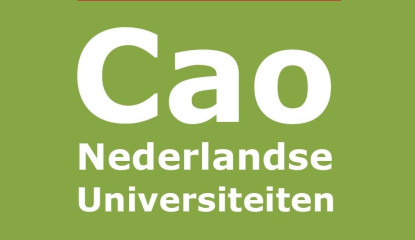Universities and employee organisations reach agreement on new collective agreement
Topical

The Universities of the Netherlands (UNL) and employee organisations have reached a negotiation settlement on a new Collective Labour Agreement for Dutch Universities. The agreement includes a pay increase of 3.7% from 1 September 2024, with salaries to be raised by a further 1.0% on 1 January 2025. Staff employed at a Dutch university on 1 September 2024 will receive a one-off gross payment of 300 euros. The universities and unions have also agreed on strategies to tackle social safety and workload issues. The new collective labour agreement will run until 30 June 2025. Margot van der Starre, Vice-President of Utrecht University and head of the UNL delegation, says: “Due to the budget cuts announced by the incoming government, the universities find themselves in uncertain times, financially speaking. For this reason, we and the unions opted for a responsible pay increase.”
Contact
Working together
The universities are currently in an uncertain financial situation due to the budget cuts announced by the incoming government and the anticipated decline in student numbers. For instance, the government is planning systemic cuts of over 500 million euros to university funding. In spite of the uncertain financial times, the universities want to continue to stand behind their staff. That is why they have raised their pay by 3.7% in this collective labour agreement, with a further 1.0% increase to come in 2025. With this responsible pay agreement, employers and unions are sending a message that they are keen to work together to tackle the issues plaguing our sector.
Social safety
The universities and unions are further committed to improving social safety in universities, a subject that deserves our ongoing attention. Creating a socially safe working environment will require a culture change in universities. The parties to the collective labour agreement therefore agreed that the universities will invest in increasing awareness, create a central reporting centre at each institution and evaluate the ombudsperson role in the autumn of 2024. These are supplementary measures that will be pursued on top of the steps the universities are already taking. For example, last month the universities signed the Social Safety Covenant, along with the FNV, AOB, PNN, ISO and LSVb, and the universities are working on a joint action plan to tackle social safety.
Workloads
The parties to the collective labour agreement will take further steps to deal with high workloads by linking the causes of high workloads with appropriate solutions in a more structured way, at all levels of the universities. The report from the Labour Inspectorate, the sector report on workloads and the Working Conditions Catalogue will form the basis of these solutions. The parties to the collective labour agreement also emphasise the importance of taking time off to recover and to relieve the pressure of work. In the next collective labour agreement term, they will launch a campaign to reduce workloads. Find the English version of the full negotiation settlement containing all of the agreements below.


